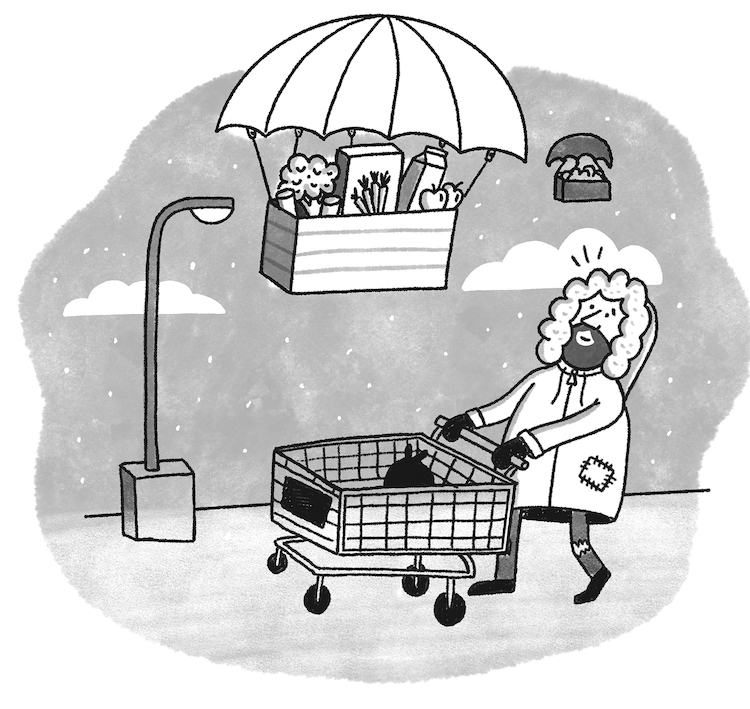When a soldier returns home from an overseas tour, it usually brings to mind images of families reuniting, or that oh-so-loyal dog baying at the door as its master, still dressed in military green, comes up the walk.
But, for many veterans, homecomings are difficult. When Bruce Given returned home, he couldn’t find work or a way to fit in. He was homeless. He needed help, and began working with the Veterans Association Food Bank in Calgary. Two years later, he helped open the Edmonton branch, which serves clients in Alberta north of Red Deer, and is now the operations manager.
The food bank is open to vets, plus those who have served in the RCMP, as well as international vets, including some from the United States.
“Prove to us that you’re a veteran and we’ll feed you,” Given says.
The Edmonton branch serves about 150 clients, plus their families, which sometimes includes pets. “Some people will feed their pets before feeding themselves,” Given says. Given served in Croatia, Bosnia, Haiti and Germany, but felt isolated when he returned home.
“When you serve, you help others,” he says. “And then, you come home. You don’t know how to ask for help for yourself. You can’t take off this invisible suit of armour.”
“Many veterans come home and they see no opportunities here,” says Ana Feher, the community liaison for the VAFB. “They do not see how they can fit into society.”
Feher is a reservist and spent several weeks last year at the Wainwright base, where life is very isolated and regimented. Returning to Edmonton, even only after a few weeks on base, was “disorienting” for her.
“There are many who come back and have a hard time finding anything, to find a niche that will let them get on with their lives.”
The VAFB not only prepares food hampers for those in need, but also provides support services, helping veterans access job-training and mental-health programs and even helps them fill out their paperwork for veterans affairs claims.
The organization is also partnered with Homes For Heroes, an initiative from The Mustard Seed that gives homeless vets the chance to live in a tiny home in a Forest Lawn community. VAFB helps with referrals to the Homes For Heroes programs. The truth, though, is that for many veterans, there are no happy reunions with someone waiting for them when they come back home. If you’d like to help VAFB, visit veternsassociationfoodbank.ca.
